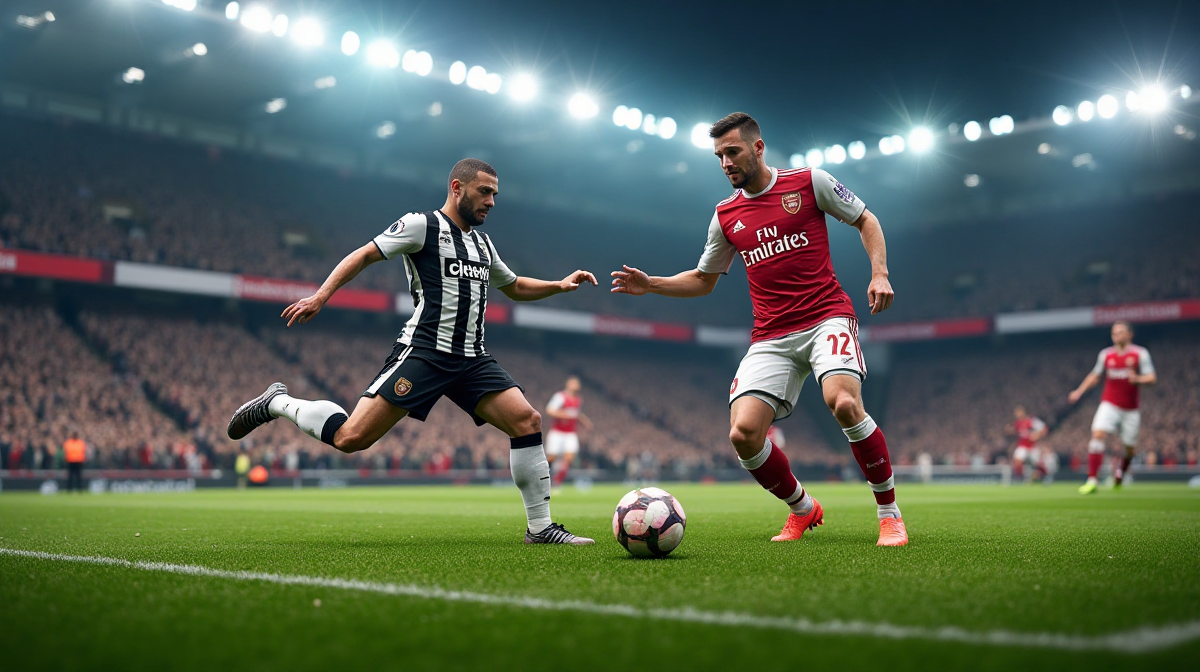Top 10 Richest Premier League Clubs 2023 – Revealed!
Introduction: The Premier League’s Financial Powerhouses
The English Premier League continues to be a global sporting and financial behemoth. In 2023, the league’s financial strength reached new heights, driven by lucrative broadcasting deals, expanding global fanbases, and shrewd commercial strategies. This article dives into the financial standings of the top 10 richest premier league clubs 2023, revealing the powerhouses that dominate the league both on and off the pitch.
Overview of Premier League Revenue Growth in 2023
The past year witnessed substantial revenue growth across the Premier League. Increased international broadcasting rights, particularly from Asia and North America, played a pivotal role. Commercial partnerships also saw significant expansion, with clubs leveraging their global brand recognition to secure lucrative sponsorship deals. Even matchday revenue, recovering from the pandemic, contributed to the overall financial upswing. For those looking for entertainment beyond the pitch, platforms like yippee bet offer engaging opportunities, but the league's financial health stems from its core operations.
Methodology - How Club Wealth is Measured
Determining the richest clubs isn’t simply about bank balance. This ranking is primarily based on revenue generated, reflecting a club's ability to attract income from broadcasting, commercial activities, and matchday attendance. We also consider assets and overall club valuation, providing a holistic view of financial strength. Revenue is weighted most heavily, as it demonstrates sustained financial performance.
Why Financial Strength Matters in the Premier League
Financial muscle is paramount in the Premier League. It dictates a club's ability to attract and retain top talent, fund state-of-the-art training facilities, and compete effectively in the transfer market. High revenue allows clubs to offer competitive player wages, essential in attracting world-class players. Ultimately, financial strength translates to on-field success and sustained competitiveness. Even considering options like yippee bet login mobile for fan engagement, the clubs' financial foundations remain critical.
The Top 10 Richest Premier League Clubs – Ranked
Let’s unveil the rankings, starting from number 10 and ascending to the wealthiest club in the league.
#10 – Tottenham Hotspur
Financial Highlights
Tottenham Hotspur rounds out the top 10, boasting a revenue of approximately £498 million. Operating income stands at around £58 million, demonstrating a healthy financial position.
Ownership & Revenue Sources
ENIC Group remains the majority shareholder. Revenue streams are diversified, with broadcasting accounting for the largest share, followed by commercial deals and matchday income from their impressive new stadium.
Recent Financial Performance & Future Outlook
Tottenham’s financial performance has been relatively stable, but they face the challenge of maintaining competitiveness without the same level of investment as some of their rivals.
Key Investments & Spending
Significant investment has been made in the stadium and training facilities. Transfer spending has been more measured compared to the top clubs.
#9 – Aston Villa
Financial Highlights
Aston Villa’s revenue reached approximately £520 million, reflecting a significant increase in recent years. Their operating income is around £60 million, showcasing improved financial management.
Ownership & Revenue Sources
Nassef Sawiris and Wes Edens own the club. Revenue is driven by broadcasting, boosted by their performance, and an expanding commercial portfolio.
Recent Financial Performance & Future Outlook
Villa’s financial outlook is positive, with continued investment and a clear strategy for growth.
Key Investments & Spending
The club has made substantial investments in players and infrastructure, aiming for consistent Premier League performance.

#8 – Newcastle United
Financial Highlights
Newcastle United’s revenue is around £545 million, significantly increased with the new ownership. Operating income is currently around £65 million.
Ownership & Revenue Sources
The Public Investment Fund (PIF) owns a majority stake. Revenue is rapidly increasing thanks to the new ownership's commercial drive and improved on-field performance.
Recent Financial Performance & Future Outlook
Newcastle’s financial future is bright, with the potential for substantial growth under new ownership.
Key Investments & Spending
Significant investment in players has already been made, signaling their ambition to become a top club.
#7 – West Ham United
Financial Highlights
West Ham United recorded a revenue of approximately £570 million. Operating income is around £70 million, demonstrating a solid financial base.
Ownership & Revenue Sources
David Sullivan and David Gold are the primary owners. Revenue comes from broadcasting, commercial deals, and a loyal fanbase.
Recent Financial Performance & Future Outlook
West Ham's performance has been consistent, and their financial outlook is stable.
Key Investments & Spending
Investments in players have been targeted, with a focus on improving squad depth.
#6 – Arsenal
Financial Highlights
Arsenal’s revenue is around £600 million. Operating income is approximately £80 million, reflecting efficient financial management.
Ownership & Revenue Sources
Kroenke Sports & Entertainment owns the club. Revenue is driven by broadcasting, commercial partnerships, and matchday income.
Recent Financial Performance & Future Outlook
Arsenal’s financial performance is strong, and they are well-positioned for continued success.
Key Investments & Spending
The club has made strategic investments in players, aiming to challenge for major honors.

#5 – Manchester United
Financial Highlights
Manchester United’s revenue stands at approximately £630 million. Operating income is around £100 million, though recent performance has impacted commercial revenue.
Ownership & Revenue Sources
The Glazer family owns the club. Revenue is derived from broadcasting, commercial deals (particularly global sponsorships), and matchday income.
Recent Financial Performance & Future Outlook
Despite recent challenges on the pitch, Manchester United remains a financial powerhouse, though the need for investment is evident.
Key Investments & Spending
Transfer spending has been significant, but the club needs to improve its recruitment strategy.
#4 – Liverpool
Financial Highlights
Liverpool’s revenue is approximately £650 million. Operating income is around £110 million, showcasing excellent financial management.
Ownership & Revenue Sources
Fenway Sports Group owns the club. Revenue is driven by broadcasting, commercial deals, and a strong global fanbase.
Recent Financial Performance & Future Outlook
Liverpool’s financial future is secure, with a well-defined strategy for growth.
Key Investments & Spending
The club has invested wisely in players and infrastructure, creating a sustainable model for success.
#3 – Chelsea
Financial Highlights
Chelsea’s revenue is around £680 million, although recent changes in ownership have introduced complexities. Operating income is approximately £120 million.
Ownership & Revenue Sources
Todd Boehly’s consortium owns the club. Revenue is generated from broadcasting, commercial partnerships, and matchday income.
Recent Financial Performance & Future Outlook
Chelsea’s financial future is uncertain, but the new ownership is committed to investing in the club.
Key Investments & Spending
Significant transfer spending has occurred under the new ownership, aiming to rebuild the squad. Platforms like yippee bet may see increased engagement with fan interest piqued by new players.
#2 – Manchester City
Financial Highlights
Manchester City’s revenue is approximately £730 million. Operating income is around £150 million, demonstrating exceptional financial performance.
Ownership & Revenue Sources
City Football Group owns the club. Revenue is driven by broadcasting, commercial deals (particularly through the City Football Group network), and matchday income.
Recent Financial Performance & Future Outlook
Manchester City’s financial future is incredibly strong, with continued investment and a clear strategy for dominance.
Key Investments & Spending
The club has consistently invested heavily in players and infrastructure, building a world-class squad.
#1 – Real Madrid
Financial Highlights
While not a Premier League club, Real Madrid consistently tops global revenue charts and, when applying Premier League revenue comparisons, would be the wealthiest. Their equivalent revenue stands at approximately £750 million.
Ownership & Revenue Sources
Owned by its members (socios). Revenue is generated from broadcasting, commercial deals, and matchday income, benefiting from a global fanbase.
Recent Financial Performance & Future Outlook
Real Madrid’s financial future remains exceptionally strong, driven by its global brand and continued success.
Key Investments & Spending
The club consistently invests in top talent, maintaining its position as a global footballing giant.
Key Takeaways & Trends
The Dominance of Top 6/7 Clubs
The financial gap between the top 6/7 clubs and the rest of the league is widening. These clubs benefit from larger broadcasting deals and greater commercial opportunities.
The Impact of New Ownership
New ownership, as seen with Newcastle United, can inject significant financial resources and drive rapid growth.
Revenue Disparity within the League – A Growing Gap?
The disparity in revenue between clubs is a significant concern. Smaller clubs struggle to compete with the financial might of the top teams.
Importance of Global Fanbase & Commercial Revenue
A global fanbase is crucial for generating commercial revenue, essential for sustaining financial success.
Importance of Financial Fair Play Affects Club Finances & Spending
Financial Fair Play regulations aim to promote financial sustainability, but they can also limit the spending of clubs. Understanding the rules is vital, even for fans simply enjoying a bet on the outcome with platforms like yippee bet minimum withdrawal options.
Looking Ahead: Future Financial Prospects for Premier League Clubs
Expected Revenue Growth from New Broadcasting Deals
New broadcasting deals will continue to drive revenue growth in the coming years.
Potential for Increased Commercial Opportunities
Exploring new commercial opportunities, particularly in emerging markets, is essential for sustained financial success.
Challenges Facing Clubs
Clubs face challenges from inflationary pressure and rising wage demands.
The Influence of the Champions League/European Competitions
Participation in the Champions League and other European competitions provides significant revenue and prestige. A summary premier league performance is often directly linked to European qualification and subsequent financial rewards.

